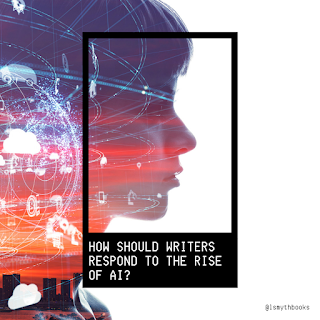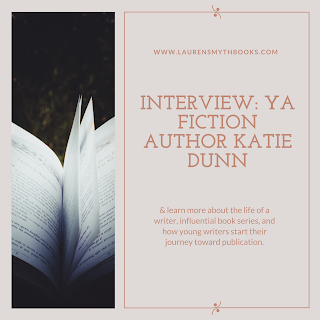YOUR PROMPTS + MY ANSWERS = ???
This week, I ran a poll on my Instagram story asking for writing prompts, promising I'd answer them on my blog this Saturday.
1. (@southern.huckleberry.boy) You should write about how ... "I lost the game."
Well, now that everybody reading this article has also lost the game, let me share some of my emotions when I first realized that I'd lost the game.
The first overwhelming feeling was numb astonishment - disbelief that there were humans on the planet
You get the idea.
2. (@dhwajpens) Write about loving one's own company.
This prompt is interesting because, as an author, I'm almost never alone. One of my characters is in my head letting me see part of their personality I didn't expect, or a new scene is visualizing that I have to pause and write down. This is one of the reasons I enjoy being physically alone - it helps me find inspiration. For me, loving my own company means taking some time away from the outer world to explore the inner - especially important since I'm naturally introverted. Just like any well-developed character, everybody has both worlds, and it's always detrimental to let one overpower the other.
3. (@hcprintz) Write something involving nature! :)
I don't think I can say this any better than my nine-year-old self did:
Dec. 5, 2012, backyard - A tiny petunia planted itself in our yard. It used to be beautiful, but it is losing color. I might too, because it feels a lot colder than 58.
4. (@writer.vibes, @khamosh__fariyad) Love.
Love is beautifully ambiguous. Friend love? Romantic love? Family love? It has more forms than a chameleon, and every one of them is special in its own way.
If you break writing down to its absolute basics, you'll generally find a story of a character with love for something pitted against a character with hatred for something - possibly the same thing - and the tension between the two polar opposite emotions. It's important to recognize both and give each their fair part in the story, because nobody can truthfully say they've never hated or loved. But in an ideal story, the character with love wins in the end. Why?
Because love is a stronger emotion than hate. In theological terms, if God is represented by love and the devil by hate, it's simply the battle between good and evil, love and hate, God and devil on a small scale in the human world.
As romantic as it sounds, love is always a logical feeling. It's good manifesting in human form.
5. (@gracemiller921) Beginnings and endings.
People often say that endings are worse than beginnings. This is poetic, but not quite correct. Here is a list of things that are best at the ending:
- Algebra
- Surgery
- Long awkward dinners
- Novels
- Exams
- Yard work
- Writing
And a list of things that are best at the beginning:
- Guacamole
Most things are perfect right between the beginning and the end. When you're in the middle, you saw the beginning and now you probably think it was a rough start (like how you and I technically bonded over vegetables and wives' meetings!) You know that the end is probably somewhere in the future, even if you don't know exactly where. This perspective forces you to enjoy what you have while you've got it: you're safely moved past the beginning, but now you're always approaching the end.
Of course, this doesn't mean you should focus on the end - that'd be too depressing. Instead, focus on making the most of the present happy middle.
6. (@plight.of.wanderers) Write about positivity.
Positivity, admittedly, is something I'm not very good at. Because I struggle with it, I've had to study it, and here's what I've come up with over time:
- Positivity is about how you perceive things, not how they actually are. My dance teacher beat this in to my head, always saying that I could do things if I believed I could do them. I could stay balanced if I focused on just doing it and not on what would happen if I didn't. I could, therefore I did. Positivity works the same way. Simply put, it's what allows you to stay strong even when situations are dark.
- Positivity requires support. Being positive and 100% isolated at the same time is self-contradictory. It's important to have at least one person with whom you can share stories, eat popcorn, and talk about brass doorknobs and pickle juice (see #7). Humans were made to be in relationship with each other.
- Positivity requires role models. This is a good time to pull our your favorite book and find your favorite character. Often, villains model positivity surprisingly well. Usually they have lives of trauma behind them, but despite that, they're focused on a goal - even if it's not a beneficial or good one. If you're a bookworm like me, it's helpful to find role models from real life and from books. Not only does it make a (good) book seem more realistic when you compare it to real life, but you'll also see traits in each role model that you might not have noticed otherwise.
- Positivity won't always be there for you. Let's be honest about the nagging elephant in the room. Positivity won't always be there for you. You're going to have bad days when you think things won't get better. You're going to want to give up, but don't. When you aren't feeling positive, remember that you were and that you will again. Don't give up!
7. (@madzillav) Write about brass doorknobs and pickle juice. (I'm obviously not sorry!)
Note for all who are confused: this is in reference to a writing prompt!
Maddie, you asked for it, so you're going to get it.
My relationship with my best friend is ... complicated. It got this way because of two apparently unrelated things that you wouldn't think are very important. And what are those two things?
You guessed it - actually, if you didn't read the title, you probably didn't.
They're pickle juice and brass doorknobs.
A few months ago, I wrote a beautiful story about a brass doorknob. It was inspiring and uplifting and a truly classical masterpiece in its own way. Only, my friend didn't agree about that, and she said there was too much detail about the brass doorknob. She said that it would've been better to develop the characters by giving them quirks, rather than 'wasting time' with the brass doorknob description. "What if you made the main character drink pickle juice?" she suggested, but I didn't believe she was serious.
"So what you're saying is, you want me to throw out all that exquisite detail about the brass doorknob and put in pickle juice? How barbaric! That's an awful habit!" I cried in disgust.
That's when her expression changed, and I knew I'd messed something up. But at the time, I didn't know what.
Fast forward a few months to her surprise birthday party. We were all gathered in her dining room in the dark, waiting for her to come in and switch the lights on. She did so, and we all jumped up to sing, but the 'happy birthdays' died in our throats as we saw what she was holding ...
... a jar of pickle juice.
She was drinking it.
Instead of singing, I screamed and ran away.
I called her a traitor that day, and she heard me. I called her a pickle murderer, and she heard me.
If any of you have suggestions on how to repair this friendship, please comment below. I'm desperate.
8. (@ink_and_fable10) Immortality!!! Yayyyy!!!
I wish I could run a poll here asking how many of you want immortality and how many of you would pass. Since I can't, I'll borrow one from the internet (always wise).
According to data found here, only 1/5 of adults from the UK want to be immortal. The rest would (at least probably) turn down an unconditional offer. Why?
The article offers one reason which I thought was interesting. Among the many large and British words the author uses, I think what he's saying is that humans need the prospect of death in their future in order to produce art. There are two reasons for this. One is that death is a huge component of art (I'm looking at you, books who killed off my favorite characters) and it's an event with unique power over producing certain human emotions. Not only this, but without death, humans wouldn't do today what the could just as easily do tomorrow or the day after or a hundred years later. Motivation to leave your mark on the world disappears, and with it, all the achievements you were meant to do.
Of course, you could also argue that with all the time in the world, you'd be able to produce masterpieces nobody could've dreamed of. Then the question becomes, what motivates you to do so? It isn't a ticking clock, and if you're the only one who is immortal, it can't be family or friends either.
Would you accept the offer of eternal life?
9. (@poetry.rae) MOTHS.
The first word that comes to mind when I think of moths is LEPIDOPTERA. (We can thank sixth grade biology for that.) When you're in sixth grade, you don't know much about words that derive from Latin, and you need a different reason for a word's meaning.
Therefore, let's review how the word 'Lepidoptera' relates to moths.
Lepi = Vaguely reminds one of spots on a moth's wing. Why? Because lepi could relate to leprous, which makes spots. (Don't ask me about moths that aren't spotted. Those aren't real - they can't be.)
Dopter = sounds insect-y. Also could remind you of the word for helicopter, and both moths and helicopters fly. I think the connection here is clear.
A = The 'a' key is right next to the 's' on the keyboard. When typing this, Linnaeus must have accidentally his the 'a' key when he meant to make the word plural. This is historically and scientifically accurate given that the government actually made computers long before the general public knew about them and was hiding that fact in order to found Apple.
The rest of your prompts will be answered in an article next Saturday, so if you don't see yours here, check back!
Bonus: [anonymous] Im single and u
No, I'm happily married with two delightful children.
... married to my writing with two delightful book children.



Comments
Post a Comment